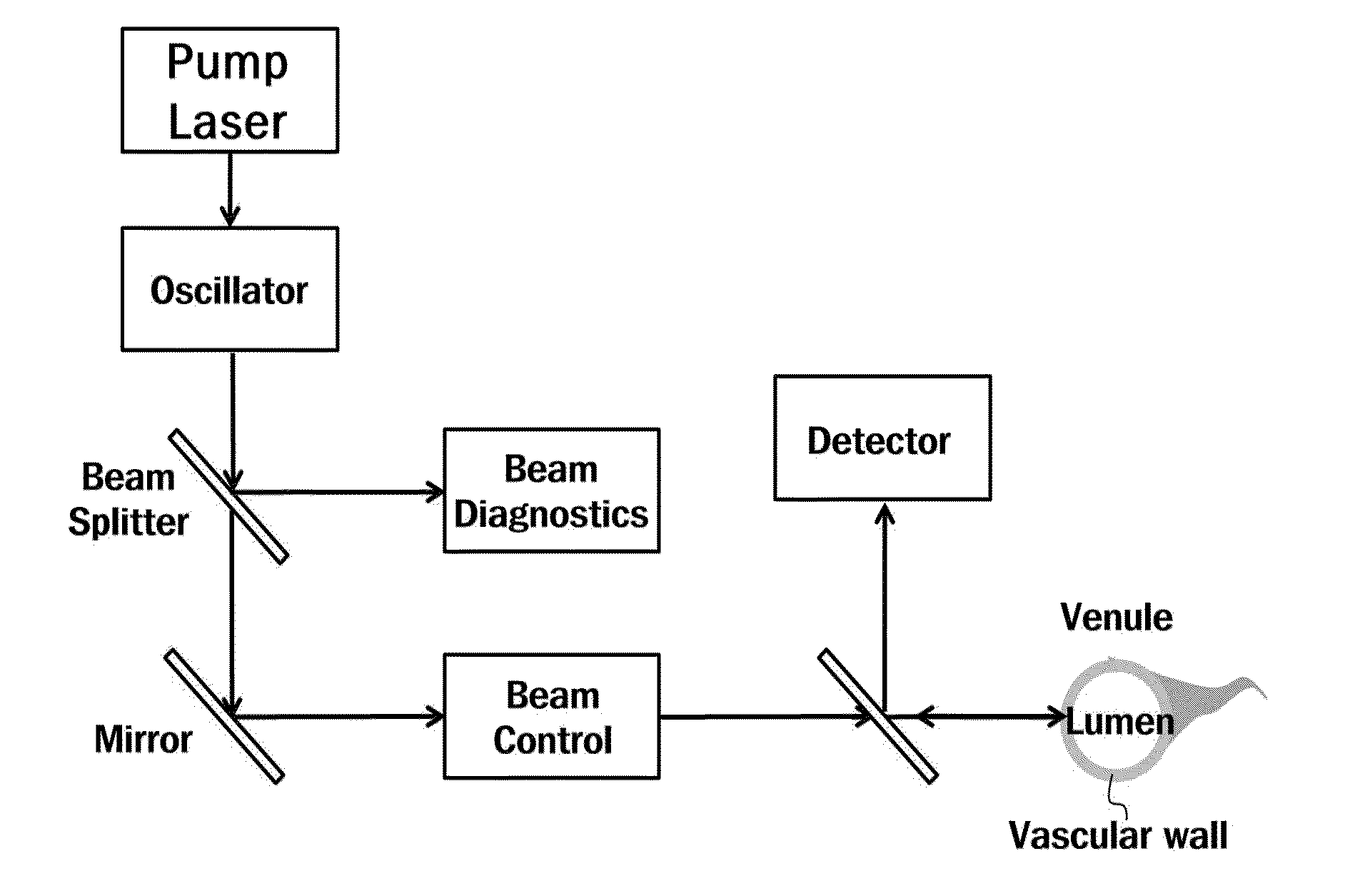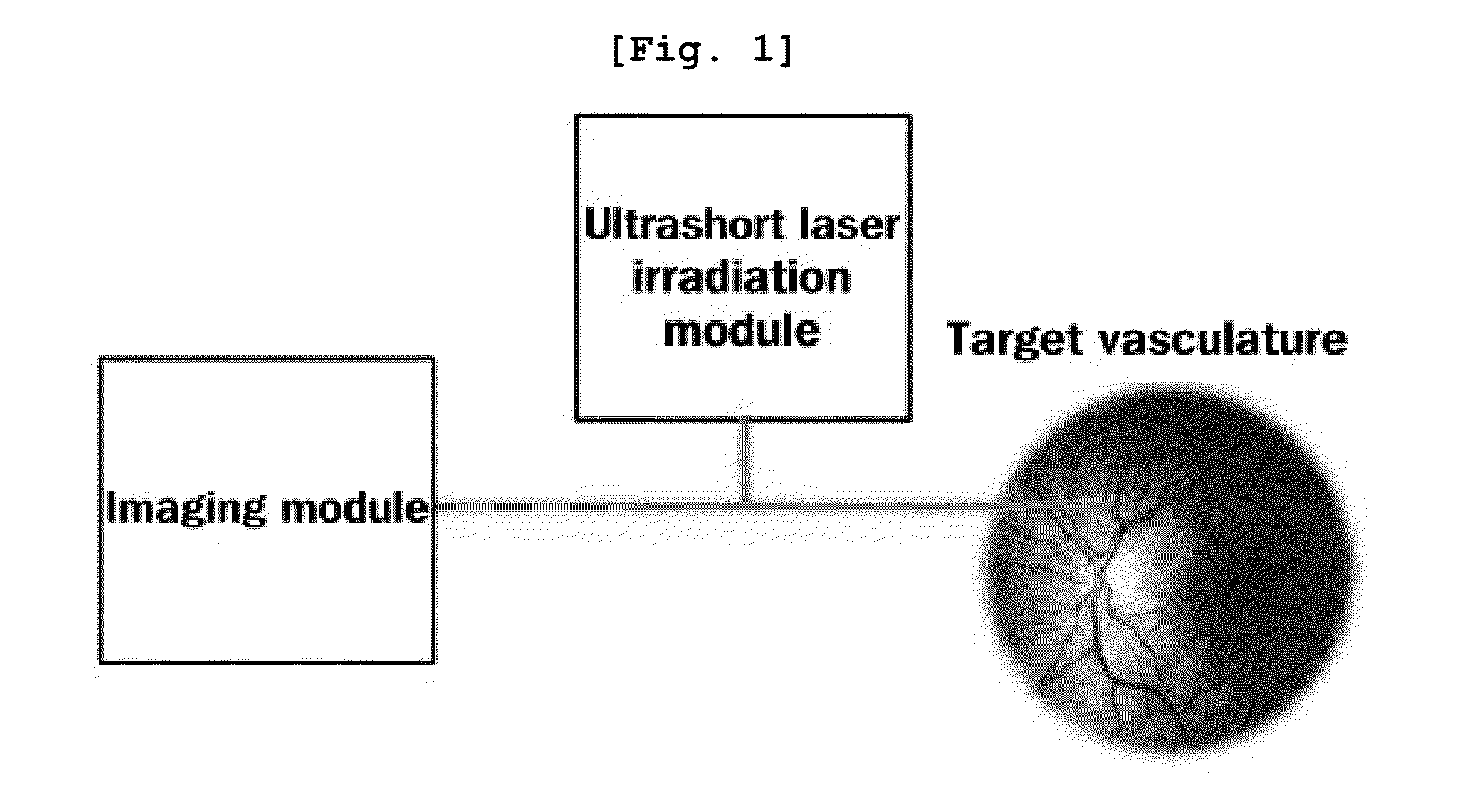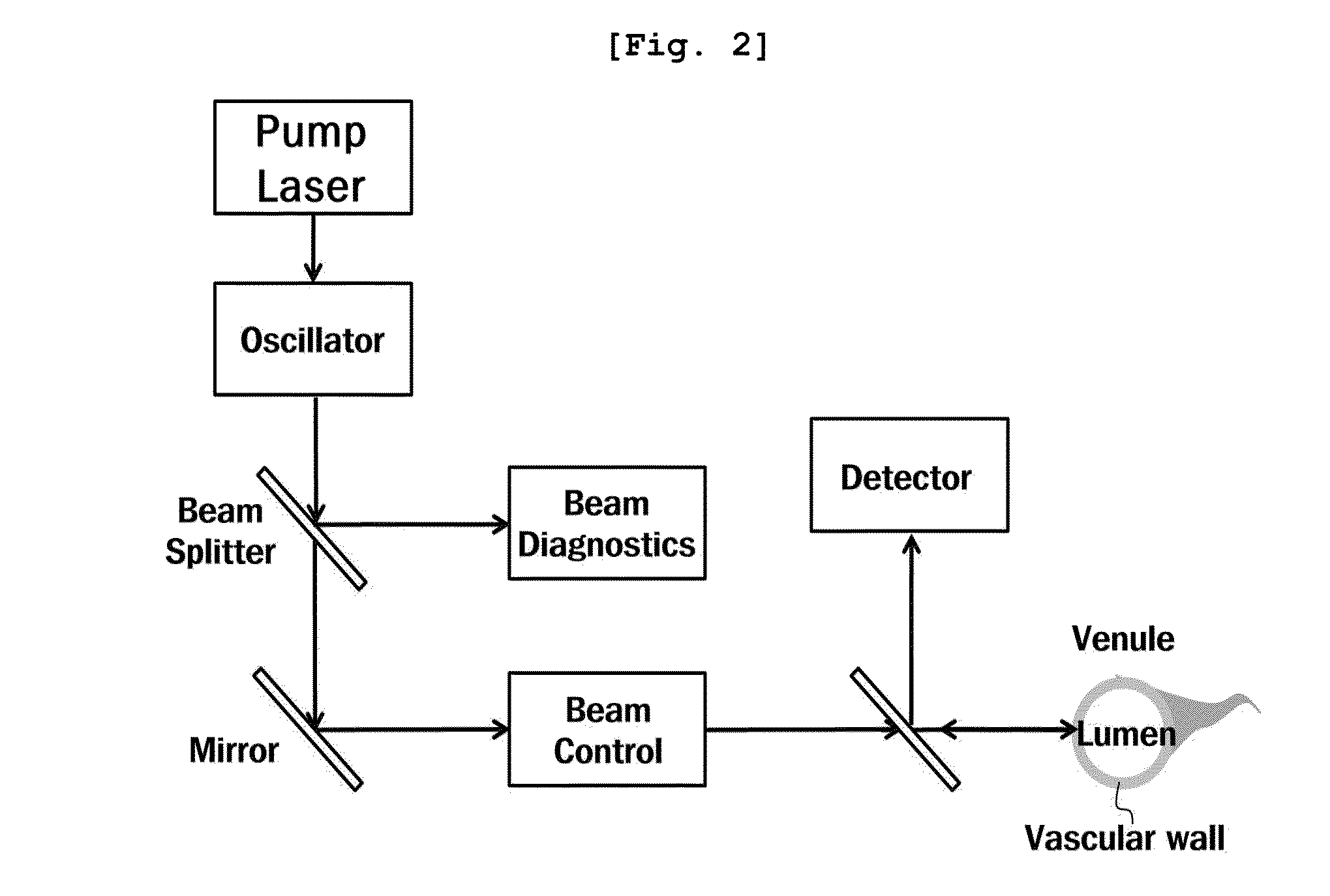Modulator of vascular permeability using pulsed laser and method for modulating vascular permeability using the same
a technology of vascular permeability and modulator, which is applied in the field of modulator of vascular permeability using pulsed laser and modulating vascular permeability, can solve the problems of limited transnasal delivery, limited low-molecular weight lipid soluble drugs, and no method that allows non-invasive and local delivery of high-molecular weight drugs into the target region
- Summary
- Abstract
- Description
- Claims
- Application Information
AI Technical Summary
Problems solved by technology
Method used
Image
Examples
example 1
Construction of a Thinned Skull Model Mouse
[0086]A thinned skull model was constructed according to a method described in a previous literature (H. T. Xu. et al., Nat Neurosci 10(5), 549-551, 2007) by using 7- to 10-week-old male ICR mice (Charles River Japan Inc, Yokohama, Japan). After anesthesia with an intraperitoneal injection of ketamine-xylazine, the scalp was removed and the skull was glued to a custom-designed metal plate (Namil Optical Components, Incheon, Korea), using dental cement. Using a high-speed micro-drill, a circular area of skull, 2-4 mm in diameter, over a region of interest was thinned under a dissection microscope until a thin, smooth preparation was achieved. The animal care and construction procedures were performed under the approval of the Animal Care Committee of KAIST (Daejeon, Republic of Korea).
example 2
Identification of Pulsed Laser Induced Vascular Permeabilization
[0087] Pulsed Laser Stimulation on Cerebral Cortical Vein
[0088]To observe the induction of vascular permeabilization by pulsed laser irradiation, pulsed laser was stimulated on a mouse cerebral cortical vein. Specifically, two-photon laser scanning microscopy (LSM510; Carl Zeiss, Oberkochen, Germany) with a femtosecond pulsed laser (Chameleon; Coherent, Santa Clara, Calif., USA) tuned to 800 nm and a water immersion objective lens (20×, 1.0 numerical aperture) was used. Target venules which coursed parallel to the cerebral cortical surface and which had lumen diameters of 10-50 μM and subsurface depths of up to 100 μM were selected in a thinned skull window model. The vascular type was measured by confirming the direction of blood flow in the branching vessels. To target the vascular wall, a region outside the visualized luminal surface was selected for irradiation. The irradiation duration was fixed at 1.6 ms. The aver...
example 3
Identification of Effects of Pulsed Laser Irradiation on Damage to Vascular Wall
[0096]3-1> Effects of Pulsed Laser Irradiation on Changes in a Target Blood Vessel
[0097]In order to quantitatively analyze structural and functional changes of a target blood vessel by pulsed laser irradiation, changes in lumen diameter, blood flow, and BBB integrity were checked. According to the method in Example , pulsed laser was irradiated on a target blood vessel, and the lumen diameter and blood flow in the blood vessel were measured as the baseline vascular structure and the red blood cell speed before and 10 minutes after induced extravasation. In addition, a 70 kDa dextran conjugated dye was used to check the BBB integrity. Extravasation was induced with red-colored 70 kDa TRITC-dextran and stood for about 10 min. Next, green-colored 70 kDa FITC-dextran was intravenously injected to check whether the BBB was restored.
[0098]As a result, it was shown that there were no changes in lumen diameter a...
PUM
 Login to View More
Login to View More Abstract
Description
Claims
Application Information
 Login to View More
Login to View More - R&D
- Intellectual Property
- Life Sciences
- Materials
- Tech Scout
- Unparalleled Data Quality
- Higher Quality Content
- 60% Fewer Hallucinations
Browse by: Latest US Patents, China's latest patents, Technical Efficacy Thesaurus, Application Domain, Technology Topic, Popular Technical Reports.
© 2025 PatSnap. All rights reserved.Legal|Privacy policy|Modern Slavery Act Transparency Statement|Sitemap|About US| Contact US: help@patsnap.com



